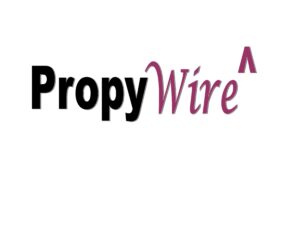Where current finance meets with future cryptocurrency. See how MakerDAO plans will help smaller banks in addition to changing how loans are done.
The line between DeFi and the traditional finance world continues to blur.
An application to onboard loans originated by Huntingdon Valley Bank (HVB), for use as collateral in MakerDAO, has gone live on the platform’s forum.
Based in the suburbs of Philadelphia, HVB is a 151-year-old community bank with $500M in assets. If its loans are accepted as collateral by MakerDAO, that would mark the first time a traditional lender has been able to borrow against its assets using DeFi, according to the protocol’s Twitter account.
Loan Syndication
The deal punctuates the cross pollination that appears to be accelerating between DeFi and TradFi enterprises. MakerDAO’s members are considering a proposal to tap real world assets to strengthen its surplus fund. And the Aave Arc lending platform has been soliciting banks and other traditional institutions.
For MakerDAO, it shows that DeFi can offer something useful to banks — the ability to sell parts of their loans in a process called “loan syndication” to a protocol. Banks like syndication because it lets them rake in more revenue and offload credit risk.
In this case, HVB plans to sell its loans to a Delaware Statutory Trust, a business entity which, Gregory Di Prisco, former head of business development at the Maker Foundation before it dissolved, told The Defiant functions like a smart contract.
Real World Loan
The trust would hold the loans the same way Maker’s smart contracts manage collateral like ETH. In both cases, the party offering up the collateral, be it crypto or a real world loan, can borrow DAI, Maker’s stablecoin against those assets.
The structure is a bit complex. HVB would sell portions of loans to the trust, and get DAI in return. HVB could then convert DAI to fiat dollars and write more loans. The idea is that this move will let the bank earn more interest from higher loan volume.
There are other advantages for HVB. Small banks usually sell portions of their loans to competitors in order to fulfill regulatory or diversification requirements, according to Di Prisco, who founded a company, called RWA Co., to help bridge the gap between institutional borrowers and DeFi. By selling their loans to a trust, they don’t have to do business with their competitors, as is customary in the traditional finance world.
“So instead of having to go out there and say, hey you, other small bank, who didn’t do any work in originating this loan, come and take a piece of my economics,” Di Prisco said of the proposed transaction framework. “They [HVB] say, hey Maker, who I know will never compete with me because it’s software, why don’t you take a piece of this loan.”
The application still has a ways to go until HVB can actually start selling its loans to the trust (and ostensibly Maker). According to Di Prisco, there needs to be what’s called a “greenlight poll” and then an executive vote before the functionality goes live.
Huge Spectrum
Still, Di Prisco, who, as a part of RWA Co., worked on putting together the details which culminated in the new application on Maker’s forums, is optimistic that the proposal can be up for executive vote within a few months. “There’s a huge spectrum of how prepared an application is when it hits the forum,” he said. “And I think this is one of the more thoroughly prepared.”
Di Prisco says the HVB deal could lead to more integration between traditional banks andDeFi. The trust which buys the loans on behalf of Maker will be able to do business with many institutions. Indeed, the collateral onboarding application is called the “Multi-Bank Participation Trust.”
Further, when asked if RWA Company was in talks with other banks which could follow a similar framework to collateralize loans with Maker, Di Prisco had a simple answer: “You betcha.”
Disclaimer
Disclaimer: Although the material contained on this website was prepared based on information from public and private sources that Propywire.com believes to be reliable, no representation, warranty or undertaking, stated or implied, is given as to the accuracy of the information contained herein, and Propywire.com expressly disclaims any liability for the accuracy and completeness of the information contained on this website.Propywire.com is not recommending or advising readers to buy or sell any cryptocurrency. All data and information on Propywire.com are provided for informational purposes only and are not intended for investment or any other purposes.
